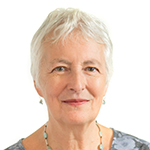 NICE celebrates its twentieth birthday today and it has much to celebrate. Despite an ever-widening remit and a budget squeeze, it has managed to avoid the turbulence experienced by other UK arms-length bodies, gaining international respect for the robustness of its procedures and recommendations. In the past year alone NICE has produced 288 pieces of evidence-based guidance, including clinical guidelines, technology assessments, quality standards, social care guides, medicines awareness bulletins, technology briefings, and so on. An important factor in its success has been its ability to attract and make good use of contributions from patients and public.
NICE celebrates its twentieth birthday today and it has much to celebrate. Despite an ever-widening remit and a budget squeeze, it has managed to avoid the turbulence experienced by other UK arms-length bodies, gaining international respect for the robustness of its procedures and recommendations. In the past year alone NICE has produced 288 pieces of evidence-based guidance, including clinical guidelines, technology assessments, quality standards, social care guides, medicines awareness bulletins, technology briefings, and so on. An important factor in its success has been its ability to attract and make good use of contributions from patients and public.
Involvement of people who use services, carers, or members of the public is core business for NICE, embodied in its charter and principles. Each of the plethora of independent committees responsible for developing NICE guidance includes a minimum of two lay members. Since 2010 no less than 1,265 patients, carers and members of the public have contributed to the development of NICE guidance, working alongside professional and topic experts as equal partners. Most find this a fascinating and enjoyable experience and there’s no shortage of people wanting to join. Advertisements for lay committee members attract 6 – 7 applicants for each vacancy.
Evidence on people’s experience of using services forms part of the discussion in guidance committees, and special steps are taken to obtain the views of particular groups, for example people with learning difficulties, or children and young people. Meanwhile wider public involvement is achieved by inviting voluntary and community organisations to comment on the scope of guidelines or draft recommendations, to help disseminate and implement recommendations, or to use evidence summaries when making decisions about their own care. And any member of the public can choose to attend NICE’s public meetings, including board meetings, committees and appeals.
These activities are supported by 16 staff who work in the Public Involvement Programme (PIP) at NICE. They are responsible for organising recruitment to committees, for inducting and training lay members, and providing them with support and financial compensation. PIP staff also support the stakeholder engagement process and organise training in the principles and practice of public involvement for NICE staff and committee chairs, continually reviewing and improving procedures to identify and remove any obstacles.
Much of the work carried out by NICE and its various committees is highly technical and sometimes controversial. Guidance committees represent a broad spectrum of knowledge and interests. It can be challenging to get to grips with the range and nature of the evidence that must be considered before agreeing on recommendations. The chair’s role is fundamental to the success or otherwise of the equal partnership between lay and professional members that NICE aspires to. NICE has recently adopted a policy of appointing non-expert chairs, people who do not have specialist knowledge of the topic under consideration. Many chairs have a medical or professional background, but in a recent development some committees now have lay chairs. The chair’s job is to ensure that committee members work well together, abide by NICE policies and processes, and see that everyone contributes and respects other points of view.
Building agreement on what should be provided by a public service is never easy and there have certainly been times when individual contributors, both lay and professional, have felt their views weren’t given sufficient weight, but NICE committees are remarkable in that they usually do manage to achieve a consensus. The keys to successful public involvement in this work lie in recruitment of enthusiastic and committed individuals who believe in the value of the task they are asked to perform, effective leadership from skilled chairs, strong support from NICE staff, well-developed procedures set out in manuals for all to read, and a commitment to openness, transparency and contestability through the appeals process.
Other lessons we can take from NICE’s long experience of supporting public involvement include the need for creative approaches to recruit a diversity of contributors, being aware of the special needs of those with illnesses and disabilities including access arrangements, the importance of securing involvement at all stages of the guidance development process, and the value of good communications and feedback to keep people informed and engaged. NICE has amassed valuable experience on what it takes to do public involvement well. There is much that other public bodies can gain from their experience.
Angela Coulter is a non-executive director of NICE and a member of the BMJ’s patient panel.
Competing interests: Angela’s full declaration of competing interests can be found here.
